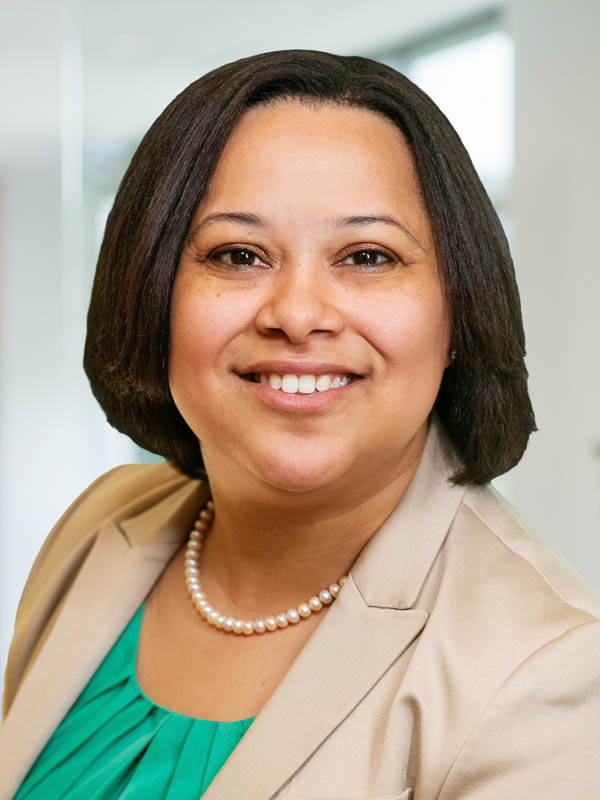Helping Build That Pipeline
Institutional Investor at the Diversity, Equity and Inclusion Roundtable in Chicago recognized 12 industry leaders for their work and commitment to diversity initiatives. Here are some excerpts from our conversation with Venus Phillips.
As Managing Director at Kresge Foundation since 2021, Venus Phillips has nurtured the mission of founder Sebastian Kresge – promoting the wellbeing of all mankind. Started in 1924 with $60 million, the foundation is now a $4.2 billion endowment that makes $160 million in grants each year, across health, human services, education, the environment, arts and culture, and toward expanding opportunity in America’s cities.
After Venus graduated from Howard University with a Bachelor of Business Administration in Finance, she joined the industry at J.P. Morgan Asset Management then NexGen Capital Partners, before eventually joining Kresge in April 2019. Under her leadership, she has implemented an effort to make the investment team as diverse and inclusive as possible, setting a goal to have 25% of the U.S.-based assets invested with women and people of color by 2025, and increasing engagement with diverse members via conference engagement, GP hiring, and peer conversation.
The following has been edited for clarity.
 What does an inclusive industry look like?
What does an inclusive industry look like?
I believe that it is one where the junior staff is in power to go out and make those inclusive hiring decisions, be it on their teams or portfolios, but also, it’s where the senior decision-makers are attending conferences, too. Today, for a lot of the diversity, equity, and inclusion-type topics, you tend to see that all the conference-goers are women and people of color, frankly.
It’s on employers in general to change what their pattern of success looks like. Oftentimes, they recruit from the top schools, which have their own pipeline issues, and then we recruit from top investment banks, which have their own pipeline issues, and these issues just compound, and so we have to really change our view on what the predeterminants of success are.
What deliberate efforts in building your team have you made to make sure that diversity is reflected?
The Kresge Foundation was founded with a simple, but profound directive to promote wellbeing of mankind, and in pursuit of that mission, we’ve found out that expanding opportunities also involves dismantling barriers that impede pathways to equality. We wanted to operationalize equity across every working group within the foundation, so in the Investment Office we’ve adopted a three-prong strategy where we measure our success across these three different metrics. Colloquially, we’ll call it “people, portfolio and pulpit”:
With “people,” we want to improve decision-making by making sure that our investment team is diverse and as inclusive as possible; with “portfolio,” we want to improve our investment performance, by sourcing and partnering with diverse-owned firms across all asset classes, and we’ve pledged to have 25% of our U.S.-based assets invested with women and people of color by 2025; and then for “pulpit,” we want to further opportunities for diverse-owned firms and individuals, speaking at conferences and speaking with our existing relationships directly, whether it’s our peers or our GPs, and as we’re performing new diligence, really expressing that that’s a priority for us and why it’s important.
How do you plan to expand diversity?
We measure diversity as, “Do we have the right set up in order to improve our decision-making? Do we have the right perspectives at the table?” If there’s a perspective that we’re missing, then we need to go and invite that perspective in because diverse teams make better decisions: Whether it’s a jury or an executive panel within an organization, they’re going to focus more on facts than feelings or prior experiences.
We set goals for what we think that should look like, and we measure diversity metrics and report them to our investment committee at least on an annual basis, in order to ensure accountability that we’re actually making a move towards those goals. Over the next couple of years, we will be hiring new employees, so that pipeline for talent needs to be diverse and inclusive because that’s the only way that we’re going to have a variety of perspectives at the table, in order to have strong returns and do the best that we can do as fiduciaries for the endowment’s capital.
What is your proudest accomplishment?
Growing up, I didn’t know a lot about the foundation and endowment industry, which is common for a lot of people with math skills or finance majors. For me, opportunities were created by professors, mentors, and alumni from my undergraduate degree who helped show me parts of the industry that I didn’t know and helped expand my horizons. When I look at my proudest accomplishment, it’s doing that for others.
My proudest accomplishment is finding women and people of color who otherwise would not have been in this industry and helping them on that path. It’s really helping build that pipeline: It’s just a matter of making sure that people know that it is an option for them.
For the full list of DEI Award winners, visit Allocator Intel here.
To discuss the content of this article or gain access to like content Log In or Request Membership Here

